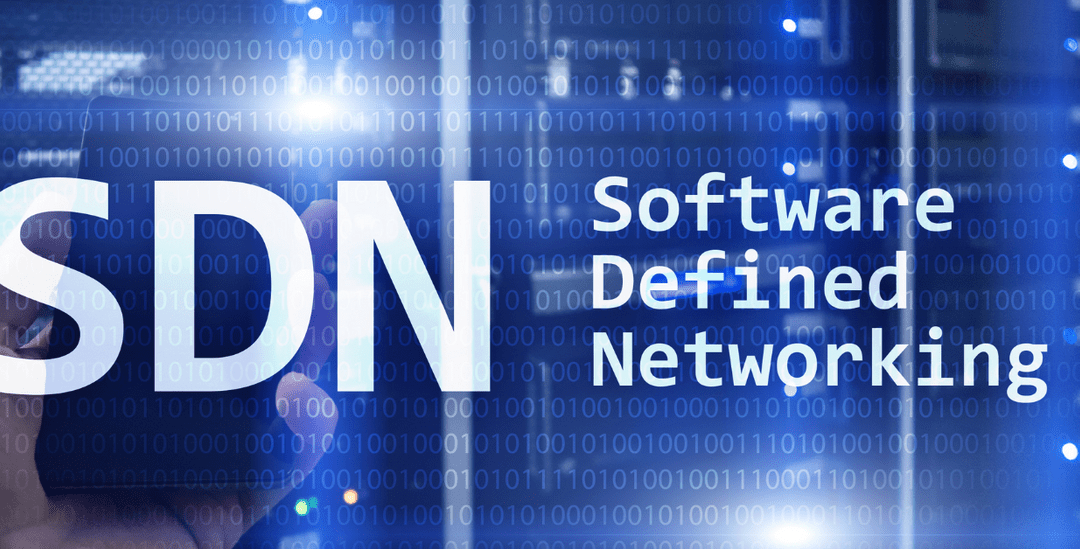The healthcare industry has undergone a dramatic transformation in recent years, leveraging advanced technologies to improve patient care, streamline operations, and safeguard sensitive data. Among these technologies, Software-Defined Networking (SDN) and Artificial Intelligence (AI) have emerged as pivotal tools, especially in addressing cybersecurity challenges. This blog delves into the intersection of SDN and AI, with a focus on their application in the healthcare sector.
SDN and AI for Cybersecurity in Healthcare
As healthcare organizations become increasingly reliant on digital technologies, they face mounting cybersecurity threats. SDN and AI offer robust solutions to these challenges.
What is Software-Defined Networking (SDN)?
SDN decouples the control plane from the data plane in network architecture, allowing centralized management and greater flexibility. In healthcare, SDN enables real-time monitoring and response to network anomalies, enhancing security and reliability.
The Role of AI in Healthcare Data Analytics and Informatics
It has revolutionized by enabling advanced data analytics and informatics. With the exponential growth of healthcare data including electronic health records (EHRs), imaging data, and patient monitoring systems AI-powered tools provide healthcare organizations with actionable insights. Companies like IBM Watson Health and Google DeepMind have developed AI systems that analyze vast datasets to identify patterns, predict outcomes, and assist in diagnosis.
AI in Healthcare Companies Leading the Way
Major players like NVIDIA, Philips, and Siemens are at the forefront of AI applications in healthcare. These companies offer solutions that integrate AI with data analytics to optimize patient care and operational efficiency. For instance, Generative AI use cases in healthcare include creating synthetic patient data to enhance research while maintaining privacy.
AI in Healthcare Jobs
The rise of AI in healthcare has also created new career opportunities. Roles such as AI specialists, healthcare data analysts, and informatics officers are in high demand. Professionals with certifications like an AI in Healthcare Certificate are better positioned to secure these jobs and contribute to the industry’s technological evolution.

Advantages of AI in Healthcare
Enhanced Diagnostics
AI algorithms analyze medical imaging with higher accuracy, enabling early detection of diseases such as cancer. For example, AI-powered tools can identify subtle patterns in X-rays, MRIs, and CT scans that may be missed by the human eye. This leads to earlier diagnoses, improving patient outcomes and survival rates. Furthermore, these tools can standardize diagnostics across healthcare providers, ensuring consistency in care delivery.
Operational Efficiency
Automation of administrative tasks reduces workload for healthcare staff, allowing them to focus on patient care. Tasks such as appointment scheduling, billing, and data entry can be handled by AI systems, saving time and minimizing human error. For instance, chatbots powered by AI can assist patients in booking appointments or answering common questions, freeing up staff resources for more complex tasks.
Personalized Medicine
AI tools analyze genetic and clinical data to tailor treatments for individual patients. By integrating data from genomics, lifestyle factors, and medical history, AI can recommend customized treatment plans. This approach enhances the effectiveness of therapies and reduces the risk of adverse reactions. For example, AI is used to identify patients who are likely to respond to specific cancer treatments, enabling more targeted and efficient care.
Economic Impact of AI in Healthcare
By optimizing workflows and reducing errors, AI lowers healthcare costs and improves resource utilization. Hospitals and clinics can save money by reducing diagnostic errors, preventing unnecessary procedures, and optimizing staff allocation. Additionally, AI-driven predictive analytics help identify patients at risk of complications, enabling early interventions that reduce long-term healthcare expenses. These efficiencies not only benefit organizations financially but also enhance patient satisfaction by reducing wait times and improving care quality.
Disadvantages of AI in Healthcare
Bias and Inclusivity
AI systems may inadvertently reinforce biases present in training data, raising questions about how healthcare AI systems ensure inclusivity and accessibility. For example, if an AI system is trained on data that lacks diversity, it may produce inaccurate or unfair outcomes for underrepresented groups. This can result in disparities in diagnosis and treatment recommendations, highlighting the need for diverse and representative datasets.
Data Privacy
The reliance on vast amounts of sensitive data introduces risks related to breaches and misuse. Healthcare organizations must ensure robust data protection measures, including encryption, secure storage, and compliance with regulations like GDPR and HIPAA. A data breach can compromise patient confidentiality, erode trust, and lead to significant financial and legal repercussions.
Legal and Ethical Issues
AI in healthcare raises unresolved legal and ethical questions, such as accountability in case of errors. For instance, if an AI system makes an incorrect diagnosis, it is unclear whether the responsibility lies with the software developer, the healthcare provider, or the organization using the system. Additionally, ethical concerns regarding patient consent, data ownership, and the transparency of AI decision-making must be addressed to ensure fair and ethical use of these technologies.
How Can Healthcare AI Systems Ensure Inclusivity and Accessibility?
Inclusivity and accessibility are critical considerations when deploying AI in healthcare. To address these challenges, organizations must:
Use diverse datasets to train AI models, ensuring fair representation of all demographics. Develop transparent algorithms that can explain their decision-making processes. Collaborate with stakeholders to create regulations that promote equitable access to AI-driven healthcare. AI and collaboration between healthcare providers also play a crucial role in ensuring inclusivity. By sharing insights and best practices, healthcare organizations can collectively improve the effectiveness and fairness of AI systems.
Generative AI Use Cases in Healthcare
Generative AI, a subset of artificial intelligence, has found innovative applications in healthcare. These include:
Medical Imaging:
Generative AI enhances the quality of diagnostic images, aiding in more accurate diagnoses.
Drug Discovery:
AI systems generate molecular structures to accelerate the development of new drugs.
Synthetic Data:
Creating synthetic patient data allows researchers to test hypotheses without compromising real patient privacy.

Meta Description: AI’s Role in Cybersecurity
Case Study: AI and SDN in a Healthcare Organization
A leading healthcare provider implemented an SDN solution integrated with AI analytics to secure its network. The system monitored real-time traffic, identified vulnerabilities, and provided actionable insights. This reduced the risk of data breaches while ensuring uninterrupted patient care.
AI in Healthcare Legal and Ethical Issues
As AI adoption grows, legal and ethical concerns must be addressed. Key issues include:
Accountability:
Determining who is responsible for errors made by AI systems.
Data Ownership:
Clarifying ownership rights over data collected and analyzed by AI tools.
Regulation:
Establishing global standards to govern AI applications in healthcare.
Economic Impact of AI in Healthcare
The economic benefits of AI in healthcare are substantial. AI optimizes resource allocation, reduces operational costs, and enables cost-effective treatment options. However, the initial investment in AI systems can be a barrier for smaller organizations.
The AI Revolution in Healthcare
The AI revolution in healthcare is reshaping the industry, offering unprecedented opportunities to improve care delivery and operational efficiency. However, to fully realize these benefits, healthcare organizations must navigate challenges related to inclusivity, ethics, and security.
By combining the flexibility of Software-Defined Networking with the intelligence of AI, the healthcare industry can create a secure, efficient, and equitable future. The collaboration between healthcare providers, technology companies, and policymakers will be essential in shaping this transformation.
At Devomech Solutions, we’re committed to providing top-notch engineering services across automation, IoT, and product development. Don’t forget to check out our portfolio for a closer look at our innovative projects and explore our blogs for expert insights and updates. Let’s innovate together and bring your ideas to life!

